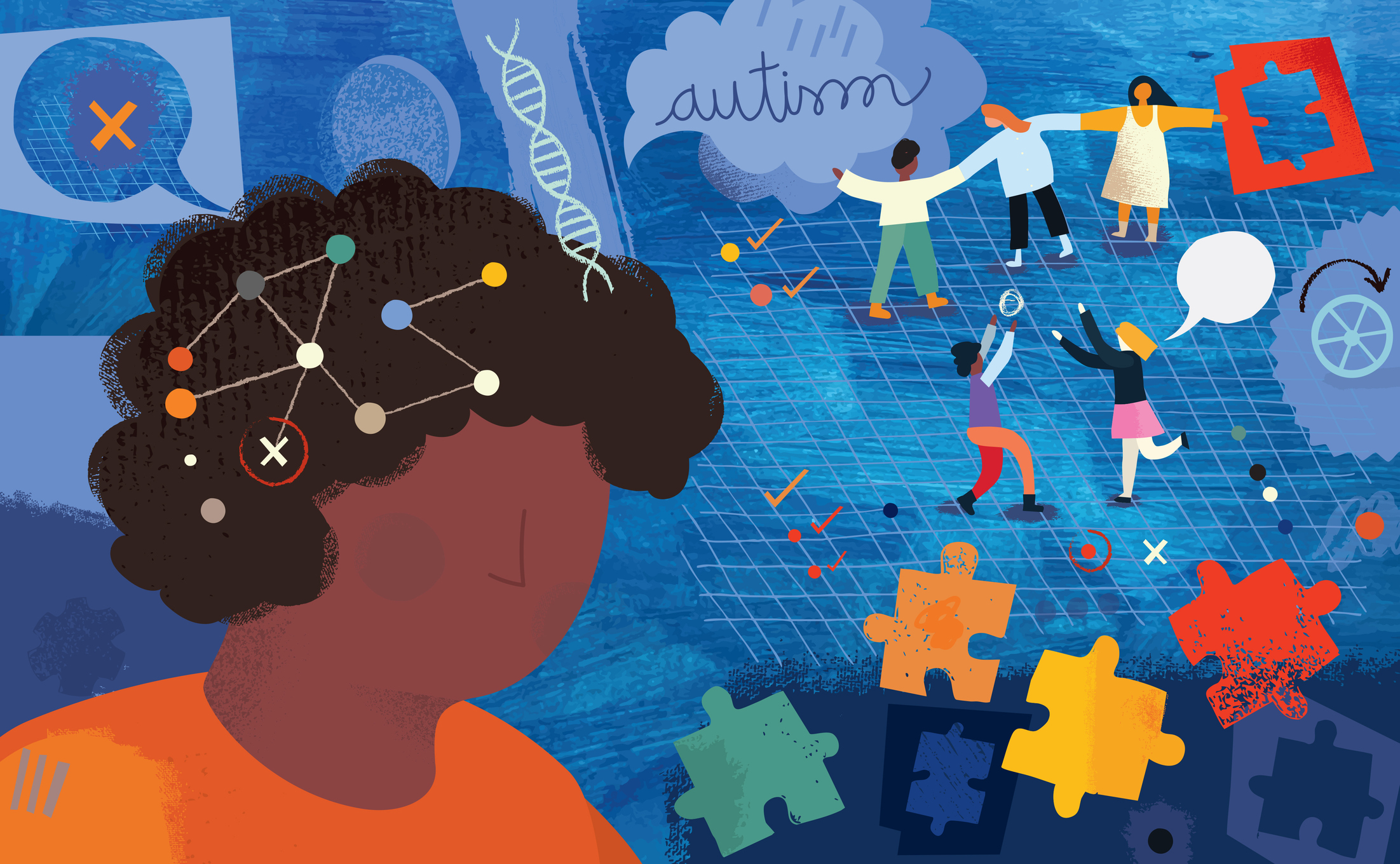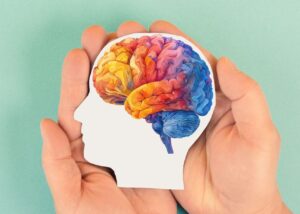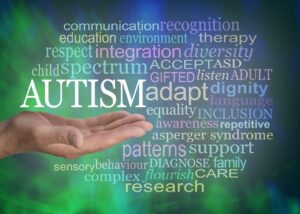
Non-verbal Autism, High-intelligence, and Telepathy
 I didn’t think that my first “spiritual” blog post would be about Autism or telepathy, however I couldn’t stay quiet when the amazing podcast of non-verbal Autistic children and The Telepathy Tapes (link) came under fire in an article that has disturbed those in my academic and scholar circles of faith-filled, spiritual “super-experiencers.”
I didn’t think that my first “spiritual” blog post would be about Autism or telepathy, however I couldn’t stay quiet when the amazing podcast of non-verbal Autistic children and The Telepathy Tapes (link) came under fire in an article that has disturbed those in my academic and scholar circles of faith-filled, spiritual “super-experiencers.”
Reading the article “What’s the Real Story Behind the ‘Telepathy Tapes’ Families?” (Weil, 2025) was deeply upsetting to me. While the piece presents itself as investigative journalism, it is clear the author enters the conversation with a materialist bias that shapes every angle of her analysis. As someone who has personally experienced a realm beyond this physical world, I feel compelled to affirm the lived truth of the families highlighted in The Telepathy Tapes podcast. I don’t believe Ky Dickens overstates her enthusiasm, she bears witness to something extraordinary and shares it with authentic conviction. Her passion is rooted in direct interaction with nonspeaking individuals whose demonstrated abilities challenge conventional paradigms of communication and consciousness.

The Real Story is In the Listening, Not the Close-Minded
I unequivocally believe these children. Listen to The Telepathy Tapes Podcast and hear it for yourself! Be prepared to be amazed. Each episode builds and grows stronger and more jaw-dropping, showing scientific evidence to support their brilliance and abilities. The awareness of numerous non-verbal autistics appears to extend beyond what mainstream science currently recognizes. They offer consistent evidence of telepathic communication, often corroborated by their families and others (like teachers and researchers) within the nonspeaker community. The intersubjective validation among these families (their shared experiences, similar testimonies, and spiritual synchronicities) lend credibility to the phenomena, especially when we consider the historical marginalization of both disabled and spiritually gifted individuals (Radin, 2006; Sheldrake, 2013).
 The author’s skepticism mirrors the rigid empiricism of those who reject all anomalous experience simply because it lies outside current scientific models. This is reminiscent of the historical denial of phenomena like near-death experiences, which were once dismissed but are now recognized and studied for their transformative psychological impact (Greyson, 2010). Similarly, critics of these families’ stories often overlook the complex emotional terrain and embodied wisdom that guide these parents. To me, it is not irrational to believe in the telepathic capacities of these individuals, it is a rational response to repeated, consistent, spiritually resonant experiences.
The author’s skepticism mirrors the rigid empiricism of those who reject all anomalous experience simply because it lies outside current scientific models. This is reminiscent of the historical denial of phenomena like near-death experiences, which were once dismissed but are now recognized and studied for their transformative psychological impact (Greyson, 2010). Similarly, critics of these families’ stories often overlook the complex emotional terrain and embodied wisdom that guide these parents. To me, it is not irrational to believe in the telepathic capacities of these individuals, it is a rational response to repeated, consistent, spiritually resonant experiences.
Much like an atheist might dismiss the existence of God without ever exploring the full scope of spiritual reality, the author seems to discount what she does not understand. To me, this form of intellectual gatekeeping blinds rather than illuminates. As Chalmers (1996) and other consciousness theorists have argued, subjective experience, and by extension, consciousness itself cannot be reduced to mechanistic processes. If we accept that consciousness may be fundamental (as suggested in panpsychism and idealist frameworks), then the claims of telepathy deserve sincere inquiry, not default dismissal.

When Lived Experience Challenges Materialist Bias
What is most remarkable—and urgently deserving of respect—is the courage and brilliance of the nonspeaking autistic children themselves. Their contributions to The Telepathy Tapes podcast are not anecdotal curiosities; they are profound demonstrations of a form of consciousness that transcends spoken language. These children are not only communicating, they are teaching us about the limits of our own perceptual frameworks and spiritual possibilities.
Ky Dickens’ (2024) work is preceded by and supported by Dr. Diane Hennacy Powell, a neuropsychiatrist who held faculty appointments at Harvard Medical School; among others. Ky’s work amplifies their voices with integrity and awe, not exaggeration. Her willingness to challenge the dominant materialist narrative reflects not just advocacy, but a moral imperative to listen deeply and rethink our assumptions. As researchers like Biklen (2005) have long argued in disability studies, we often misjudge intelligence and agency simply because it is expressed differently. These children are not “exceptions to the rule,” they may very well be pioneers of a deeper understanding of intersubjective experience and nonlocal consciousness (The Telepathy Tapes–Dickens, 2024). In simple terms: Our souls are amazing and have abilities beyond the limitations of materialist assumptions about the human body.

Finally, the argument that parents might subconsciously guide their children’s responses due to the ideomotor effect, while worth consideration, does not account for all the extraordinary examples of cognition and communication presented in the podcast. Nor does it explain the profound resonance and healing these experiences bring to the families involved. As Viktor Frankl (2006)–survivor of the Holocaust–reminds us, meaning often emerges in contexts where science alone cannot provide answers. We owe it to these families (and to our evolving understanding of the mind) to listen without presumption and explore these frontiers with both critical discernment and open-hearted curiosity.
To all Autistic Individuals and their Families: Thank you for teaching us. The world is a better place because of you.
 With Humble Love,
With Humble Love,
Jami Streyle
RN, MS, HWNC-BC, HNB-BC, Nurse Coach
Jami@bodyofgraceliving.com

References
Biklen, D. (2005). Autism and the myth of the person alone. New York University Press.
Chalmers, D. J. (1996). The conscious mind: In search of a fundamental theory. Oxford University Press.
Dickens, K. (2024). The Telepathy Tapes [Audio Podcast]. https://thetelepathytapes.com/podcast (*Also found on Audible with Amazon)
Frankl, V. E. (2006). Man’s search for meaning. Beacon Press.
Greyson, B. (2010). Seeing dead people not known to have died: “Peak in Darien” experiences. Anthropology and Humanism, 35(2), 159–171. https://doi.org/10.1111/j.1548-1409.2010.01064.x
Radin, D. (2006). Entangled minds: Extrasensory experiences in a quantum reality. Simon & Schuster.
Sheldrake, R. (2013). The science delusion: Freeing the spirit of enquiry. Coronet.
Weil, E. (2025, April 23). What’s the real story behind the ‘Telepathy Tapes’ families? New York Magazine.
Share This Story
Stay Updated
Sign up to receive the latest news and tips from Body of Grace Living.

